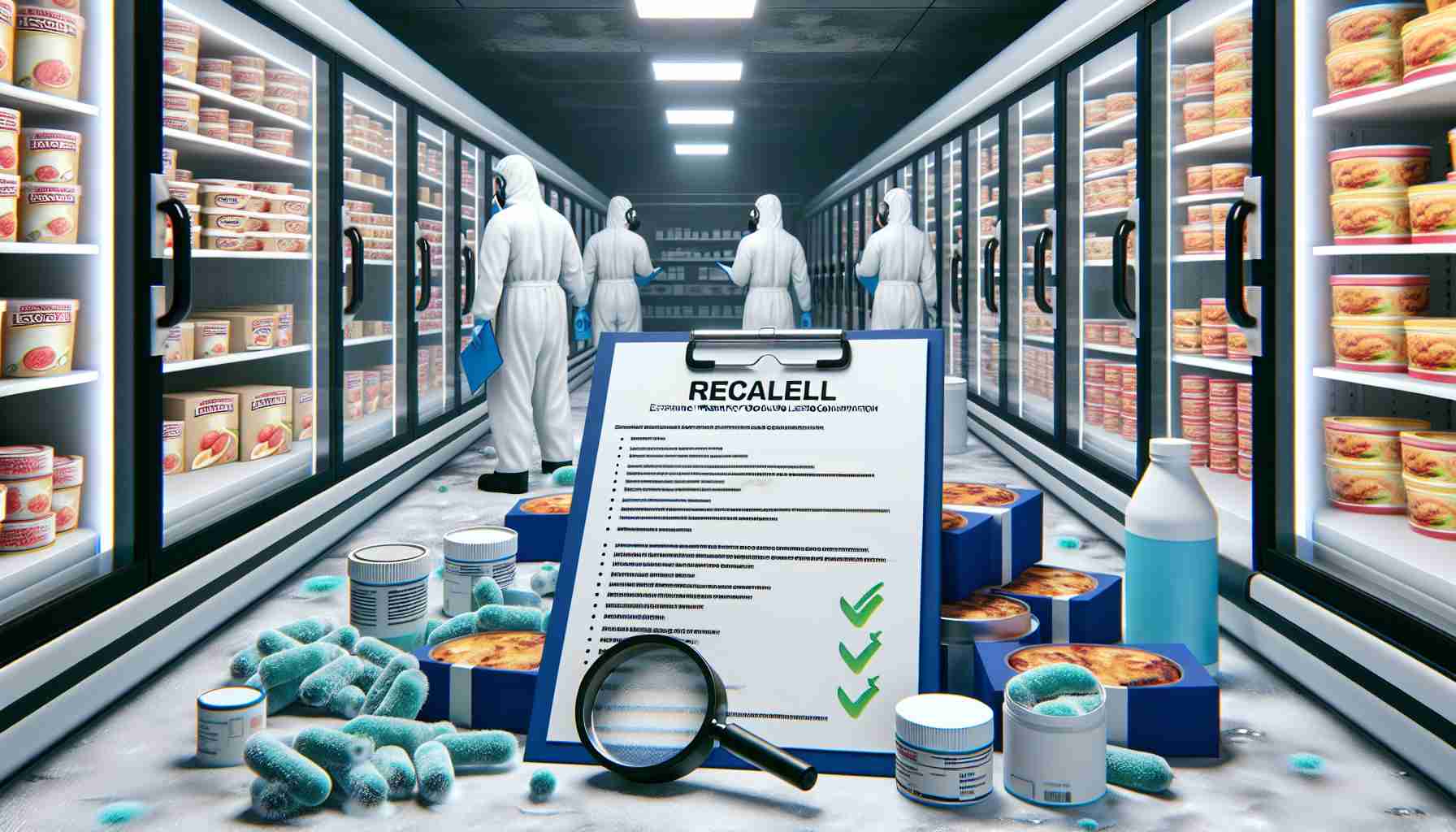A significant recall involving hundreds of frozen food products, particularly breakfast items like waffles and pancakes, has been expanded as concerns about listeria contamination have arisen. TreeHouse Foods Inc., based in Oak Brook, Illinois, announced the updated recall affecting products manufactured in their Ontario, Canada facility and distributed across numerous grocery chains, such as Aldi, Kroger, Walmart, and Publix.
Though there have been no reported illnesses linked to this specific recall, TreeHouse Foods is collaborating with food safety authorities in both the U.S. and Canada to address the contamination risk. The affected products include various brands, notably Walmart’s Great Value and Target’s Good & Gather. Consumers are urged to dispose of these items or return them to retailers for a refund.
Initial concerns emerged on October 18 when routine quality testing uncovered listeria at the Ontario manufacturing site. Further investigations indicated that multiple production lines might also harbor contamination. In response, the company has ceased production and plans to implement extensive sanitation procedures before resuming operations.
Generally, listeria infections can range from mild issues to severe health concerns, particularly for vulnerable populations such as pregnant women and the elderly. The CDC notes that approximately 1,600 listeria infections occur annually in the U.S., with a significant mortality rate. This incident marks the third major food recall tied to listeria in recent months.
Essential Tips and Life Hacks for Managing Food Safety Risks
In light of the recent recall of frozen breakfast items due to listeria contamination, it’s crucial for consumers to remain vigilant about food safety. Below are some tips, life hacks, and interesting facts to help you navigate food recalls and ensure the safety of your meals.
1. Stay Informed About Recalls
Regularly check the FDA and CDC websites for updates on food recalls. Signing up for alerts can help you stay informed. You can also visit FDA for the latest news on food safety.
2. Understand Listeria Risks
Listeria is particularly dangerous because it can grow in cold environments, such as your refrigerator. Cooking food adequately is essential to kill any harmful bacteria. Remember that ready-to-eat products should be heated before consumption, especially if they have been recalled.
3. Keep Your Kitchen Clean
Adopting strict cleanliness protocols in your kitchen can help prevent the spread of bacteria. Regularly disinfect surfaces, especially those that come in contact with raw foods. Ensure that high-risk foods are stored and prepared separately to avoid cross-contamination.
4. Organize Your Freezer and Pantry
Maintain an organized system for your frozen foods and pantry items. Label everything with the date and ensure older products are used first. This enhances food freshness and minimizes the risk of keeping recalled items at home.
5. Dispose of Affected Products Safely
If you have recalled items, dispose of them safely. Consider wrapping the product in plastic before throwing it away to ensure no one else mistakenly retrieves it. Make sure to check with retailers for any return policies related to recalls.
6. Know the Symptoms of Listeria Infection
Awareness of the symptoms can be life-saving. Early symptoms include fever, muscle aches, nausea, and diarrhea. For vulnerable populations, symptoms can escalate to more severe conditions. If you suspect you have consumed contaminated food, contact a healthcare professional promptly.
7. Elevate Awareness in Your Community
Share information about food safety within your community or social circles. Increasing awareness can significantly impact community health by ensuring that others stay informed about potential risks and recalls.
Interesting Fact:
Did you know that listeria can survive in temperatures as low as 0°C (32°F)? This ability to thrive under cold storage conditions highlights the importance of consuming foods by their expiration date and following safety guidelines.
For more information on food safety practices and the latest recall news, visit CDC. Being proactive and informed can significantly enhance your food safety awareness and help you keep your family safe.
